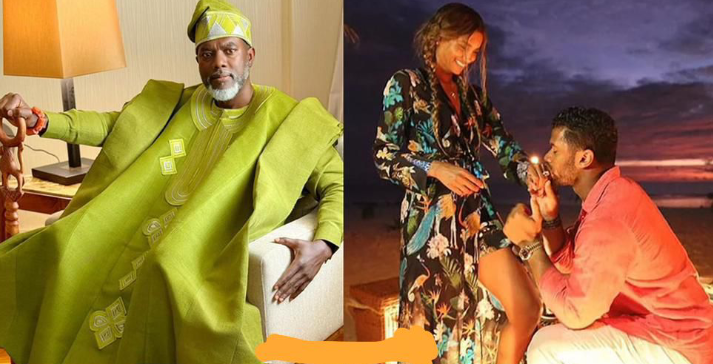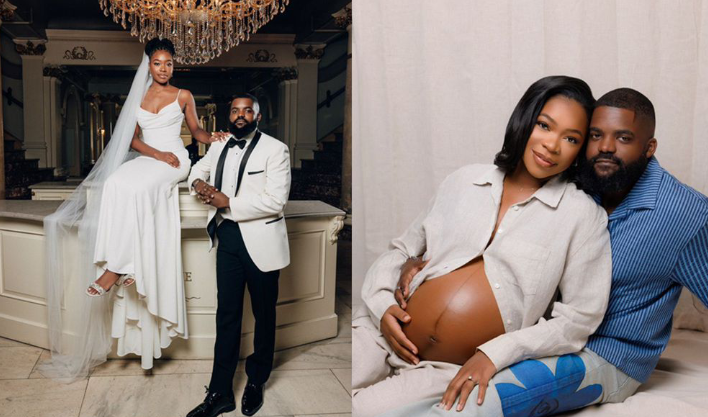
Reno Omokri Sparks Debate: ‘African Men Shouldn’t Kneel to Propose—If She Insists, Let Her Father Pay for the Wedding’

Reno Omokri, the former presidential aide and social commentator known for his outspoken takes on politics, religion, and culture, has once again ignited a heated debate across social media platforms with his recent statement on marriage proposals and cultural practices. In a post that has since gone viral, Omokri declared that kneeling to propose is a borrowed European culture that has no roots in African traditions, and therefore African men should not be compelled to adopt it. His argument, as usual, is layered with both cultural critique and a dose of sarcasm that has stirred a mix of agreement, outrage, and reflection.
According to Omokri, the act of kneeling down to propose, which has become a romanticized hallmark of engagements in contemporary times, is not part of African heritage but rather an imitation of European customs. He argued that Africans often adopt foreign practices without fully embracing the cultural context from which they originate. To illustrate his point, he cited the fact that in Europe, while men kneel to propose, it is traditionally the bride’s father who foots the bill for the wedding. He pointedly remarked that if African women want their men to kneel, then they should also demand that their fathers follow through by financing the entire wedding ceremony, just as European culture prescribes.
Omokri’s words were clear and unflinching: “A man kneeling to propose to a girl is a cultural practice that some Black Africans borrowed from Europe. It is not our culture. But if you must borrow, then borrow completely. The kneeling is just half of the borrowing. Please fact-check me: In Europe, the bride's father also pays for the wedding. As a young Black African man, do not kneel to any woman to propose. However, if she insists that you kneel before she can accept your proposal, then insist that her father must also pay for the wedding. After all, what is sauce for the goose is also sauce for the gander!”
His post has divided opinion, with many praising him for defending African identity and encouraging men to stand their ground against what they perceive as the over-romanticization of foreign cultures. Others, however, accuse him of being unnecessarily confrontational and of undermining personal choice in matters of love and relationships.
On one side of the debate, Omokri’s supporters argue that Africa has its own rich marriage traditions that should not be eroded by the influence of Western ideals. In many African cultures, engagement and marriage processes are deeply communal, involving not just the man and woman but their families, elders, and communities. The Western-style engagement ring and kneeling gesture, they argue, reduces a lifelong commitment to a private moment of theatrics influenced by Hollywood movies and Instagram culture. They emphasize that Africans must be careful not to lose their identity under the weight of global cultural exchange.
For many of these supporters, Omokri’s bluntness was refreshing. They see his words as a wake-up call to young Africans who are often quick to discard their roots for practices that hold no meaning in their heritage. “He is right,” one commenter wrote. “Why should I kneel to propose when our people never did that in the past? If we are borrowing European culture, then let us borrow it fully. Let her father pay for the wedding too. Enough of half-baked imitation.”
On the other side of the debate, critics argue that Omokri’s position is unnecessarily rigid and overlooks the fact that culture itself is dynamic. They insist that there is nothing wrong with adopting certain practices from other cultures if they resonate with people and do not cause harm. For them, kneeling to propose is not about abandoning African heritage but about personal expression of love and humility. They point out that in many traditional African settings, men kneel to greet elders or show respect, so kneeling in front of a woman they love should not be considered strange or demeaning. “It’s not about copying Europeans,” one critic argued. “It’s about expressing love in a way that has meaning today. Cultures evolve, and we can adapt without losing ourselves.”
The conversation has also opened up broader questions about the influence of Western culture on African societies, particularly in matters of love, marriage, and family life. With globalization and the dominance of Western media, many African youths have grown up consuming romantic imagery that paints kneeling proposals as the ultimate display of affection. Social media has further amplified this trend, with viral videos of elaborate proposals becoming aspirational goals for many young couples. Against this backdrop, Omokri’s insistence on rejecting the practice feels, to some, like an attempt to push back against what they see as cultural imperialism.
Yet, others see his statement as overly prescriptive. They argue that love should be personal and that couples should be free to decide how they want to express commitment to each other without cultural gatekeeping. For them, Omokri’s argument that a bride’s father should pay for the wedding if kneeling is demanded is more of a witty exaggeration than a practical suggestion, and they worry that such rhetoric could fuel unnecessary gender wars.
Interestingly, Omokri is no stranger to controversy. Known for his bold social commentary, he has often used his platform to challenge societal norms, question religious practices, and critique governance. Whether people agree with him or not, his opinions rarely go unnoticed, and this latest outburst is no exception. His statement has become a trending topic across Nigerian Twitter (now X), Facebook, and Instagram, with memes, jokes, and heated debates filling timelines.
Some men have jokingly declared that they will not kneel unless the bride’s father signs a check, while some women have fired back by insisting that kneeling is the least a man can do to show his seriousness. The clash of perspectives has highlighted the deep-seated tensions around gender roles, cultural authenticity, and modern romance.
What cannot be denied is that Omokri has struck a nerve. At a time when African societies are grappling with the tension between tradition and modernity, his words resonate as a challenge to reflect on what should be preserved and what can be adapted. Whether or not one agrees with him, his insistence that Africans should be intentional about their cultural choices forces a re-examination of practices that many take for granted.
As the debate rages on, one thing is clear: the simple act of kneeling—or refusing to kneel—has become more than just about proposals. It has become a symbolic battleground for questions of identity, heritage, and the future of African culture in a globalized world. For some, it is about resisting cultural dilution. For others, it is about embracing new ways of expressing love. And for many, it is simply about the freedom to choose.
Reno Omokri, with his characteristic mix of provocation and wit, has once again ensured that his voice remains at the center of public discourse. Whether men continue to kneel or stand tall during proposals, his message has sparked conversations that go far beyond romance. It is about who Africans are, who they want to be, and how they navigate the delicate balance between honoring their past and embracing their present.

